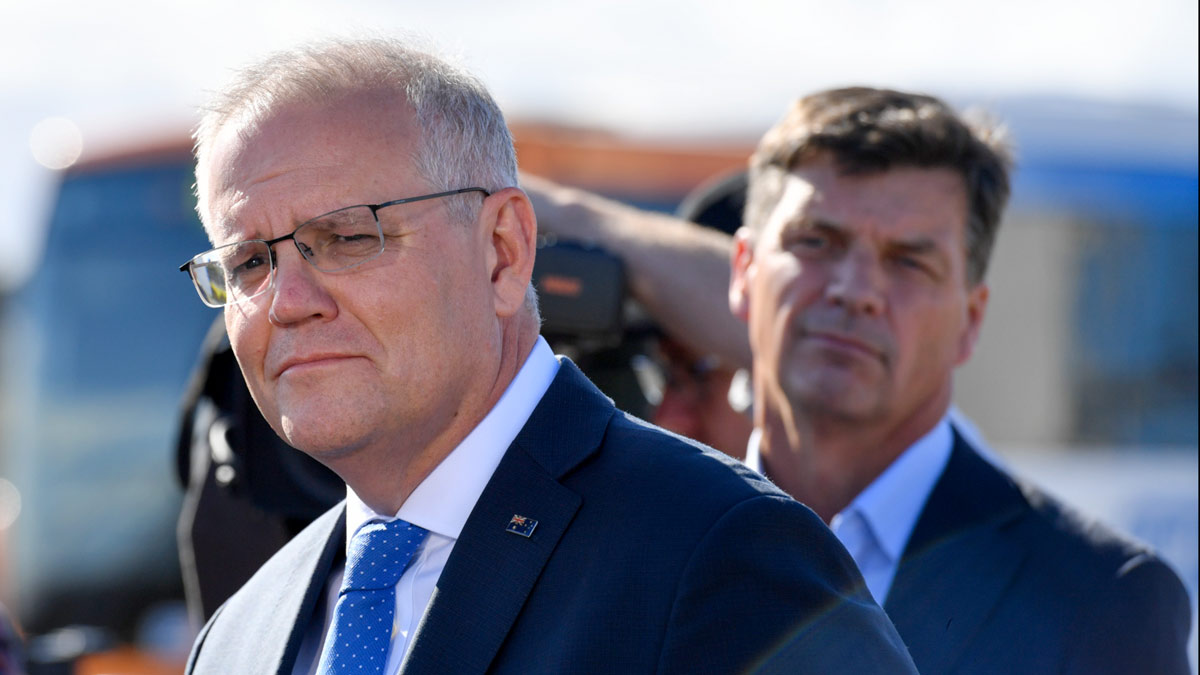Just one week into the official election campaign, the Coalition has already racked up promises to channel almost $1.3 billion in fresh subsidies to the fossil fuel industry – spending nearly $150 million a day.
The largest subsidy, announced right before the start of the Easter long weekend, will see a Coalition government spend $660 million to accelerate fracking in the Northern Territory’s Beetaloo Basin.
It’s a massive spend that dwarfs the Coalition’s commitments to support clean energy projects and one that will underwrite the expansion of Australia’s fossil fuel industries and its emissions footprint.
The development of the Beetaloo Basin has been controversial due to the sidelining of the interests of the region’s First Nations people in the planning processes, and the likelihood that most of the gas produced will be sent offshore.
The announcement of funding for the expansion of Beetaloo Basin gas extraction followed a Coalition commitment to provide $250 million to prop up Australia’s two remaining oil refineries – which it argued was necessary to maintain fuel security – while providing no new funding to support electric vehicle uptake.
The Morrison government has also provided $300 million in funding to the construction of new gas processing and export facilities in Darwin, that will help gas producers send more gas offshore to be sold into international markets.
On Tuesday, prime minister Scott Morrison announced a further $67 million in funding to subsidise the development of two carbon capture and storage projects in Western Australia.
This funding includes $40 million for Woodside’s Burrup carbon capture and storage project and $20 million for Mitsui’s Mid West carbon capture and storage hub.
A further $7 million will be provided to Buru Energy to investigate the potential for a further CCS project in the Carnarvon Basin.
All up, it amounts to $1.277 billion in fossil fuel subsidies promised by the Coalition in the election so far.
Greenpeace Australia slammed the funding provided to date, particularly the funding provided to oil and gas giant Woodside, which Greenpeace said amounted to a “license to pollute.”
“Carbon capture has never worked anywhere in the world at scale, with the most salient example of its failure being found right here in Western Australia,” head of clean transitions at Greenpeace Australia Pacific, Jess Panegyres, said.
“Chevron’s colossal Gorgon gas plant, Australia’s only commercial-scale carbon capture and storage project, has comprehensively failed – and now the Morrison government wants to hand over more public money to waste on this dangerous fantasy technology.”
“Woodside’s Burrup Hub, if it goes ahead, is set to be the most climate-polluting project in Australia. Tacking a useless carbon capture facility to the Burrup Hub is applying the world’s smallest fig leaf to this fossil fuel monstrosity, leaving Woodside free to destroy our climate.
“With renewable solutions like wind, solar and batteries offering boundless opportunities for Western Australia, the Federal government should be investing in long term energy and employment solutions for our state, rather than funding technology designed to prolong the life of polluting fossil fuel projects,” Panegyres added.
On Tuesday, the Coalition announced that it would contribute $140 million towards the creation of two hydrogen hubs in the Pilbara and at Kwinana.
The funding for the hydrogen hubs is the only Coalition commitment of the election so far that would likely boost the use of renewables, with $70 million being tipped into BP Australia’s H2Kwinana Clean Hydrogen Industrial Hub.
The same amount is being provided to the Western Australian government’s Pilbara Hydrogen Hub – both of which have indicated they would produce renewable hydrogen.
Meanwhile, Labor has been forced to defend its climate policies from yet another scare campaign launched by the Coalition, citing unpublished analysis.
Labor, and a number of energy market analysts, say the scare campaign amounts to a lie.
The Greens have made a series of announcements pledging substantial support for Australia’s renewable energy industries, including a $500 million ‘green steel bank’ and a $6.1 billion policy package to boost electric vehicle uptake.










